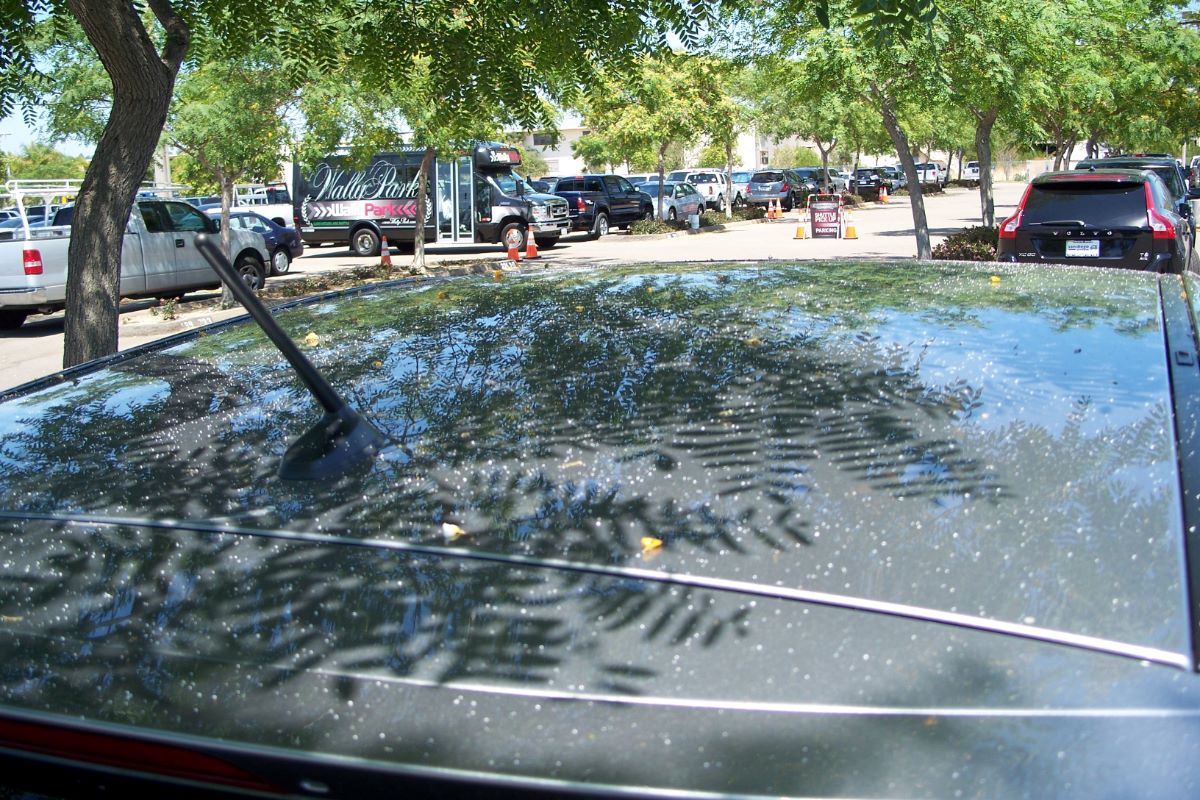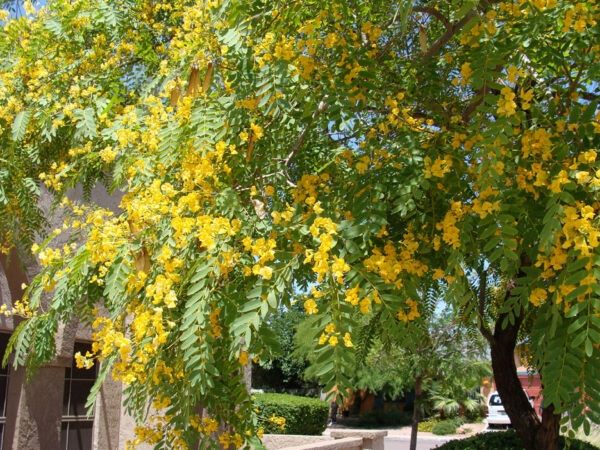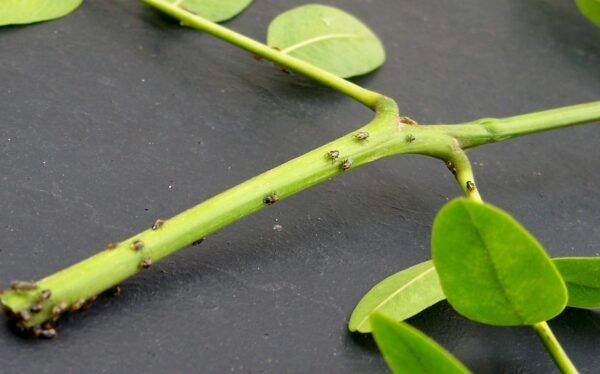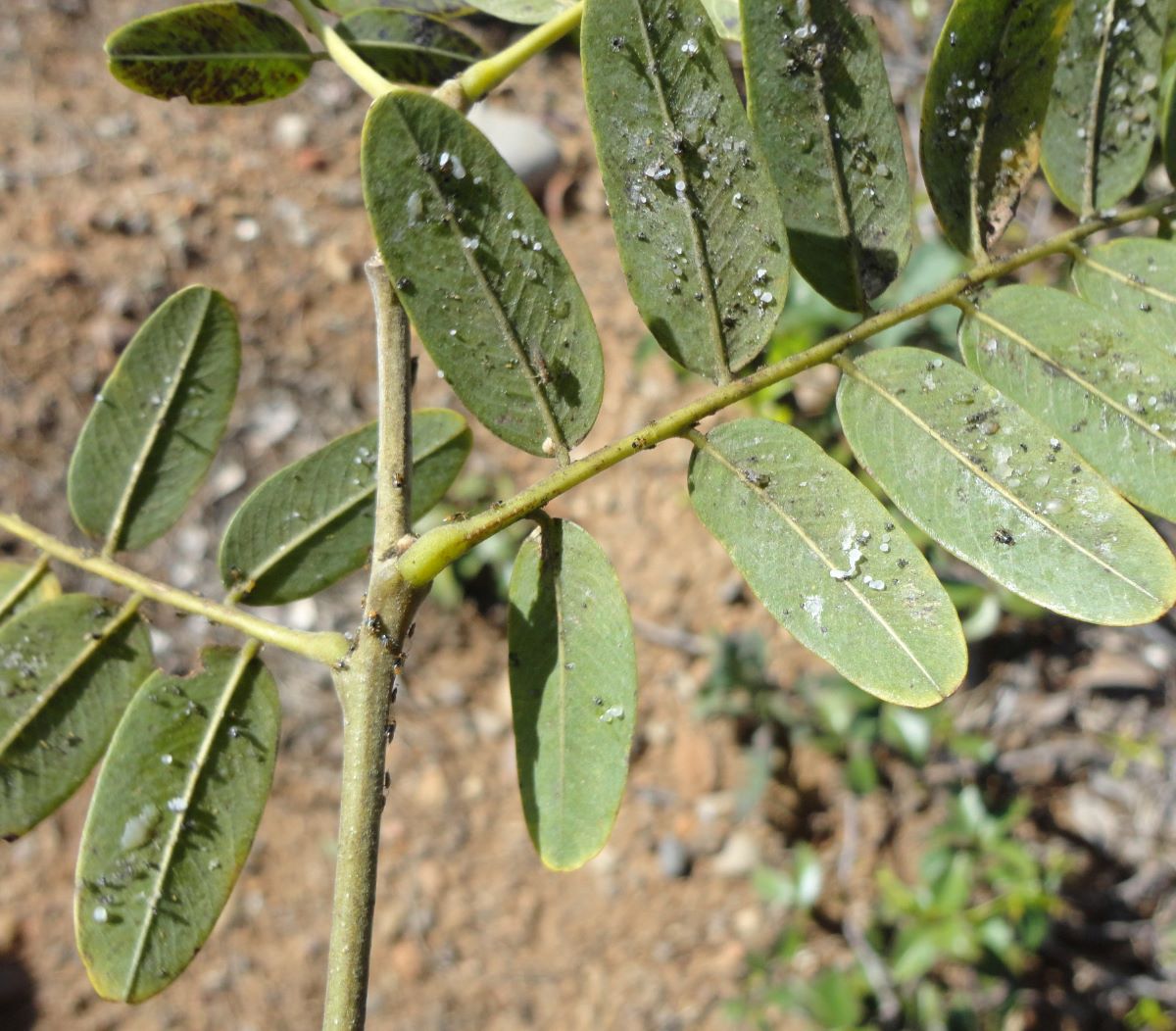Tipu Psyllid (Platycorypha nigrivirga)
Tipu Psyllid a pest primarily native to South America, was first detected in California in 2008 in Carlsbad according to data with CISR at UCR. The Tipu Psyllid establishment in California poses a significant threat to the health of Tipuana tree plantings within our state. Psyllid nymphs and adult nymphs are described as tiny insects that feed off a plants phloem. This pest will suck the juices out of leaves, causing leaves to injure (yellow, curl) and fall prematurely during the growing period.
Infested trees are contaminated with masses of wax and sticky honeydew produced by nymphs. Honeydew will then fall on nearby objects such as cars, sidewalks, etc. The extensive feeding which produces copious amounts of honeydew then leads to the growth of black sooty mold on leaves and branches. Tipu Psyllid populations can lead to trees being defoliated and excessive honeydew excretion can cause fouling of objects beneath infested trees.


Follow the link for more information and to set up Preventative treatments for your Tipuana Trees


Treatment and Control
Aguilar Plant Care can provide preventative treatments that will help control and reduce Tipu psyllid populations, thus limiting the amount of sticky honeydew pellets and prevent further damage to plants, cars and property below the infested foliage. We offer multiple treatments from tree spraying, soil/root drench, direct trunk “micro injections” and Organic options.
Treatment options for for Tipu Psyllids:
1) Foliar spray to the leaves and stems to knock down existing Adult and nymph populations.
2) Deep root injection/ drench to the immediate root zone using a systemic insecticide, along with nutrients and beneficials to help with update and absorption.
3) Direct trunk “micro” injection, this treatment injects the systemic insecticide directly inside the individual tree’s Xylem. Which then transports the insecticide to the foliage, helping provide residual control against feeding. This treatment is ideal for Tipuana trees with: small, compacted planters, or that are in high traffic areas, or drift sensitive areas (such as near pools, ponds, etc.).
4) Organic options help provide temporary knock down and control against Tipu Psyllid feeding.
With over 12 years of experience in dealing with this common pest, Aguilar Plant Care has the right treatment to help keep your trees healthy and beautiful.

